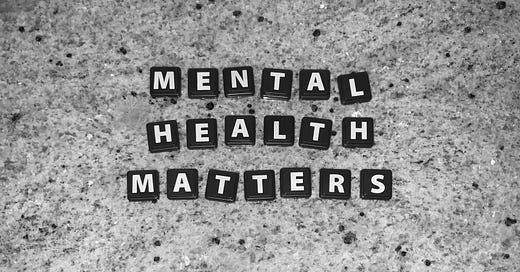The Connection Between Fibromyalgia and Mental Health:
Fibromyalgia is a chronic pain disorder it is characterized by widespread pain, fatigue, and tenderness in specific areas of the body. Researchers have yet to find the exact cause of fibromyalgia. They have found a connection between fibromyalgia and mental health.
Numerous studies have shown that people with fibromyalgia may have a higher widespread presence of mental health disorders compared to the general population. About 20 percent who live with this chronic pain also suffer from an anxiety disorder or depression. Fibromyalgia and its connection to these illnesses should not be ignored. (https://adaa.org/understanding-anxiety/related-illnesses/other-related-conditions/fibromyalgia#:~:text=About%2020%20percent%20who%20live,illnesses%20should%20not%20be%20ignored. ) This finding suggests that fibromyalgia and mental health are closely related.
The relationship between stress and fibromyalgia has been extensively researched. One review from 2019 explored the psychological effect of fibromyalgia. Several studies in the review found that not only does fibromyalgia cause high levels of stress, but this stress can, in turn, cause physical and cognitive symptoms to worsen. https://www.ncbi.nlm.nih.gov/pmc/articles/PMC6386210/) Trauma and stress can act as triggers and it may bring on fibromyalgia symptoms. A study published in the Journal of Rheumatology stated that early-life stress and adversity may increase the risk of developing fibromyalgia later in life. Chronic pain conditions like fibromyalgia often lead to emotional distress.
Researchers have been able to identify common neurological pathways between fibromyalgia and mental health disorders. A study published in the European Journal of Pain found that fibromyalgia patients have been shown to exhibit altered pain processing in the central nervous system, which is also observed in individuals with depression. These neurological findings provides a potential explanation for the existence of fibromyalgia and mental health problems.
The relationship between fibromyalgia and mental health appears to be connected. Fibromyalgia can lead to mental health challenges, but mental health issues may also make fibromyalgia symptoms worst. Stress,anxiety, and depression are common in people who have fibromyalgia, almost two-thirds of people with fibromyalgia are at risk of developing depression at some point. Although people who have fibromyalgia are more than four times, likely than those who don’t have it to be depressed, the fibromyalgia-depression link works the other way too depression- and other mental health conditions can increase the risk of developing fibromyalgia.” (Mayo Clinic Guide To Fibromyalgia by Andy Abdil, M.D. and Barbara K. Bruce, PH.D., L.P.)
In various studies and reputable sources they all strongly support a significant link between fibromyalgia and mental health.
Understanding and addressing this connection is essential when trying to manage your fibromyalgia symptoms. I’ve known many people with fibromyalgia who all share the same mental health issues. It’s nothing to be ashamed of, it’s a part of the illness. Fibromyalgia doesn’t just cause widespread pain, it also causes depression, anxiety and stress. If you are feeling any of these symptoms please talk to your physician so they can tell the the best way to treat it. Asking for help is not a sign of weakness but a sign of strength.





